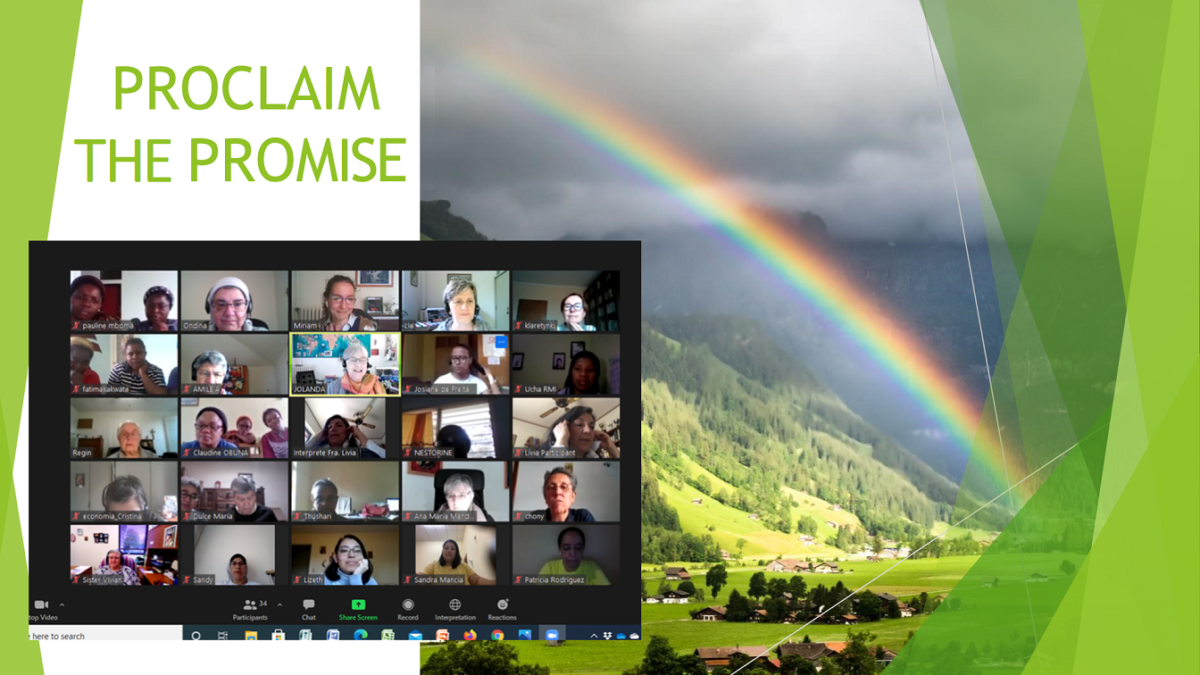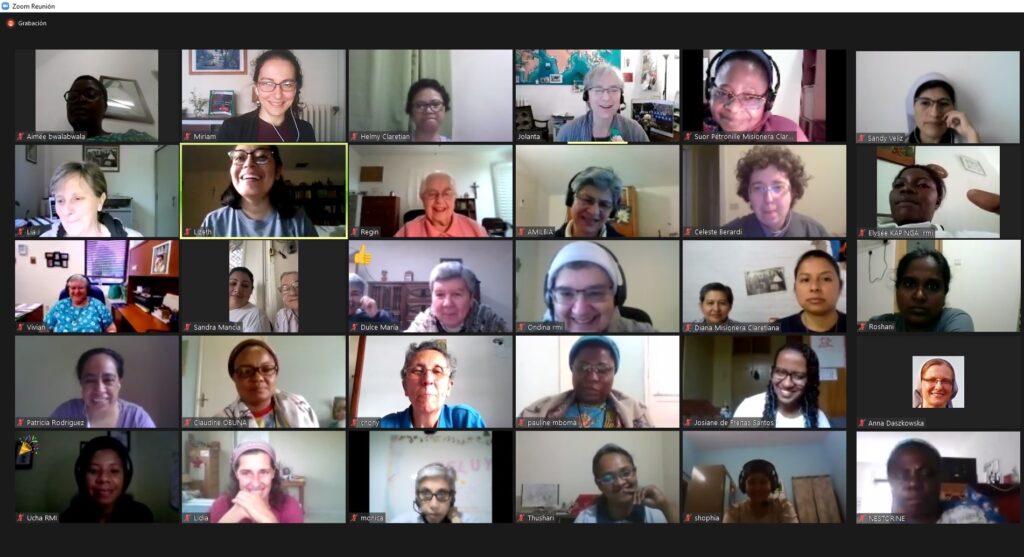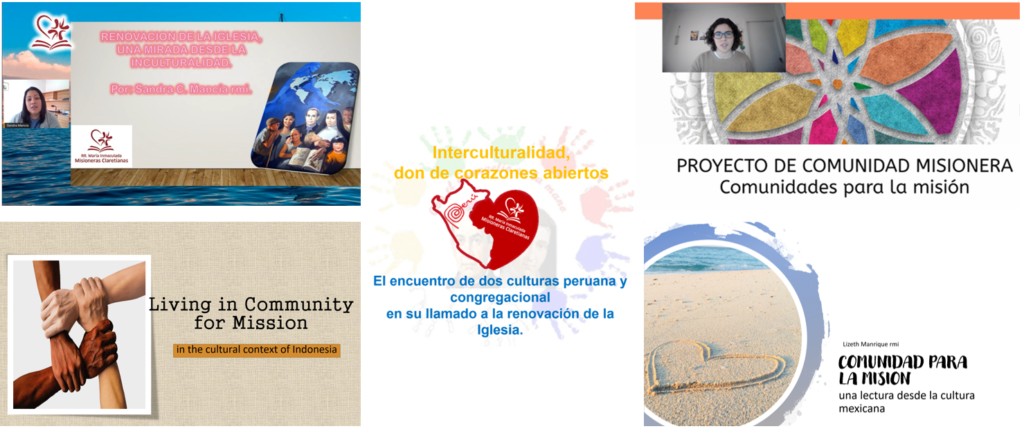
From multiculturality towards interculture – Time to proclaim the promise
20 April 2021Almost a year and a half ago, on December 7, 2019 we received a letter from Jolanta Kafka, superior general, where she shared the plans to celebrate the 100 YEARS of the UNIFIED INSTITUTE, for that reason she invited us “to rekindle our communion… from the perspective of interculturality.” She reminded us how the XVII General Chapter had instructed us to reflect on interculturality, (DC 2017:3) and to take concrete steps at the general and local level (DC 2017: 6). She therefore proposed to conduct a seminar in which we could deepen the multicultural reality of the congregation and seek keys to continue to grow in interculturality (cf. GG Programming 2.6). He’d say:
“Just as the Chapter of 1969 put the charism in conversation with the voice of the Church and modern culture, we want to put it today, in a thoughtful way, in dialogue with the variety of cultures that make up the Congregation.”
Days later the editors received a letter inviting them to prepare some topics about the charism from their culture, a delicate task in which they would be accompanied by a sister with greater experience and knowledge of the charism.
Thus began the dream of these days where as a congregation we wanted to hear the young voices, the diverse voices, but no less claretians, than those that we have been on the most years of journey. We made him convinced of what Jola told us at the beginning of the seminary: There is no culture that cannot be transformed by the Gospel and the charism. There is no charisma that cannot dialogue with any culture. As she said: to reach interculturality, the process is a new creation, it is not an adaptation, it is intentionally wanting to accept values, forms of expression, etc.
This has been a conversion in our methodology of reflection, following the guidance offered in the interculturality workshops that served as preparation. It was not a question of translating or adapting charisma to cultures… which is what is often done. The starting point has been the culture… delve into its roots, its richness, its evangelical seeds and its dissonances with regard to the Gospel. From this first act of assessment of who we are – dialogue in mutuality with the charism. Without losing sight that the irreplaceable reference is and will be the Gospel, for as our Mother Foundress said: “To God our Lord all times are present and he has given us nothing but one Holy Gospel” (PR 8)

The theme of consecration and vows seen from Mexican, Congolese culture – in its two expressions: Lele and Yansi; from Brazil presented us with the sense of the sacred that is so present in most of our mother cultures… but that by secularization has been lost in modern culture. Consecration from the following of Jesus is not separation or privilege, but gives oneself to God and service to our brothers and sisters. The vows pose real challenges of understanding to cultures, how can we talk about an option for poverty to peoples for whom being poor is not an option, but an imposition? We were invited to resignify Poverty as a conscious and sincere recognition of one’s reality and generous openness to give and receive. Dedicate ourselves to what is most valuable for us means persone and therefore be and be with the poor in following Christ.
The vow of chastity is counter-cultural in many cultures and in the contemporary one, it will only make sense from a witness of healthy and deep relationships, centered on the ability to give from a love rooted in Christ.
Finally, the vow of obedience was raised as a make available to God the greatest thing we have: the whole of our lives. We have learned the importance of discerning in community under the “tree of God’s WORD.” But listening to all the voices…
Our charism must listen to the challenges that come from culture in the face of a proposal of consecration in order to be meaningful. Like the “Meeting of the Waters” that flows into the Amazon, remembering that no culture is the navel of the world.
The reflection on fraternal life from India, Italy, Spain, Indonesia, Mexico rescued the value of the family underlying many of our cultures, discovering the new sense of family inaugurated by Jesus in equal dignity that leads us to learn to combine respect for the elderly with respect for young women.
Also the value of coexistence and unity within the diversity of languages, traditions and religions that make up some countries. These cultures teach us to emphasize what unites us, our identity and sense of belonging. We can’t stay on a superficial plane in the community. We have heard the cry for a community life that is vitalizing, where everyone feels welcome in her truth, that she can be herself in equal relations from the Evangelic fraternity. The roads to get there are diverse… the Guadalupan way of kindness and respect, partying, beauty and gratuitousness… the path of an institutional project that clarifies and orients the necessary changes. The Pancasila Road.
Finally, the theme of renewal of the Church, from Cuba, Sri lanka, Perú invited us to present a new image of the Church, a humble and less powerful Church, to contribute through humanization and fraternity from the experience of friendship openness and acceptance of differences, seeing them as opportunities for unity and enrichment.
But beyond all that has been reflected, from these marvelous reflections, something very important has happened here. As a congregation we have sought to form, to teach the way of the Gospel and the charism to the new generations that have emerged in different places. These days the Congregation has wanted to learn, listen, let her be questioned. We thank God for the voices that have been expressed these days, for the wealth, the courage, the responsibility with which they have prepared these contributions.
Es el momento de celebrar, de proclamar la promesa. Now is the time to proclaim the promise…

